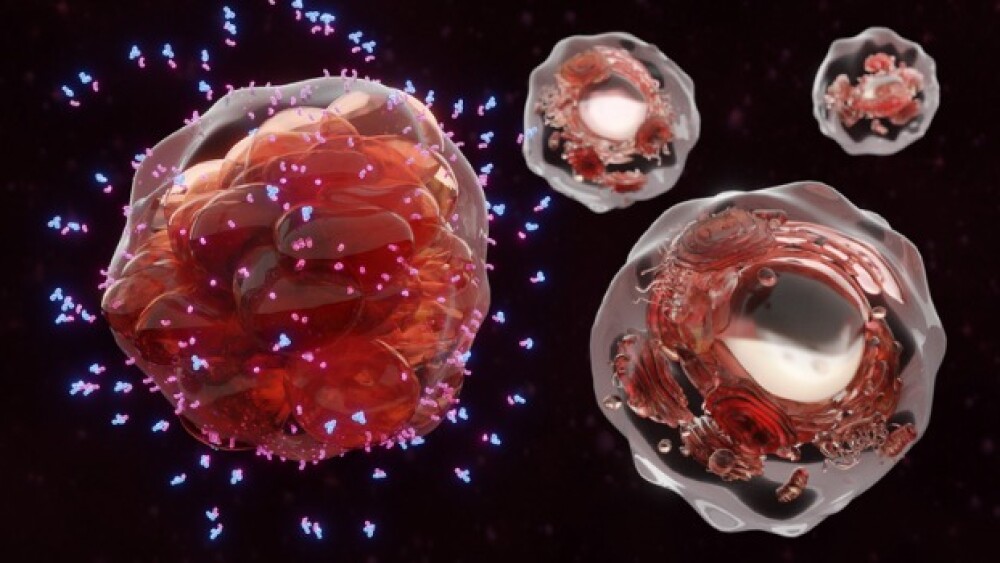The new company, Mural Oncology, will continue registrational studies of its IL-2 cytokine in melanoma and ovarian cancer utilizing a $275 million cash runway expected to take them to the end of 2025.
Pictured: Cancer cell surrounded by cytokines/iStock, Marcin Klapczynski
Alkermes on Wednesday announced that it has completed the spinoff of its oncology business to become a pure-play neuroscience company. Mural Oncology will begin trading on the Nasdaq starting Thursday, with Alkermes shareholders receiving a share of Mural for every 10 shares of Alkermes.
Mural is launching with $275 million, which is expected to fund it through the fourth quarter of 2025, and an interleukin-2 cytokine as its most advanced asset. Nemvaleukin alfa is being studied as a monotherapy for advanced mucosal or cutaneous melanoma in Phase II and is in a Phase III study in combination with Keytruda for platinum-resistant epithelial ovarian cancer.
The therapeutic is designed to avoid the hallmark toxicities of IL-2 immunotherapies. The studies are potentially registrational with readouts expected in early 2025.
Additional assets include therapies targeting IL-18 and IL-12. Mural will nominate a development candidate for each program in 2024. The new company’s CEO Caroline Loew said their reimagination of pro-inflammatory cytokine-based therapeutics could “address the key limitations with current cancer immunotherapies.”
Loew takes the helm with significant biopharma experience. She came to Mural from Glympse Bio, which was scooped up by Sunbird Bio in August 2023 for its protein-based technologies for neurological disorders and early-stage cancer. Previously, Loew was in leadership roles at Bristol Myers Squibb and Merck.
With the spinoff of its oncology business, Alkermes is now expecting better results for 2023, with a reduction of operating expenses thanks to no longer footing the bill for R&D. Net income is now projected in the range of $250 million to $280 million, up $25 million from previous forecasts.
The company’s sales are driven by its lead products which include Vivitrol for alcohol and opioid dependence as well as two schizophrenia drugs.
The motivation to split off businesses, streamline operations, decrease operating expenses and increase profits has been a trend in the industry. Sanofi, Novartis, Johnson & Johnson, GSK and more have spun off their generics or consumer health businesses in recent years as part of their pure-play growth strategies.
Kate Goodwin is a freelance life science writer based in Des Moines, Iowa. She can be reached at kate.goodwin@biospace.com and on LinkedIn.






